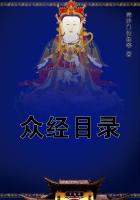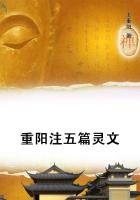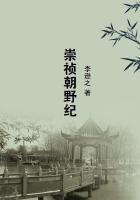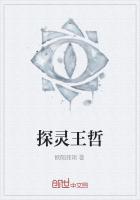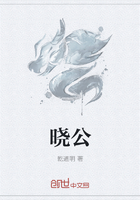Show Mr.Mallet how Mr.Striker read the Declaration of Independence."Hudson, like most men with a turn for the plastic arts, was an excellent mimic, and he represented with a great deal of humor the accent and attitude of a pompous country lawyer sustaining the burden of this customary episode of our national festival.
The sonorous twang, the see-saw gestures, the odd pronunciation, were vividly depicted.But Cecilia's manner, and the young man's quick response, ruffled a little poor Rowland's paternal conscience.
He wondered whether his cousin was not sacrificing the faculty of reverence in her clever protege to her need for amusement.
Hudson made no serious rejoinder to Rowland's compliment on his statuette until he rose to go.Rowland wondered whether he had forgotten it, and supposed that the oversight was a sign of the natural self-sufficiency of genius.
But Hudson stood a moment before he said good night, twirled his sombrero, and hesitated for the first time.
He gave Rowland a clear, penetrating glance, and then, with a wonderfully frank, appealing smile: "You really meant,"he asked, "what you said a while ago about that thing of mine?
It is good--essentially good?"
"I really meant it," said Rowland, laying a kindly hand on his shoulder.
"It is very good indeed.It is, as you say, essentially good.
That is the beauty of it."
Hudson's eyes glowed and expanded; he looked at Rowland for some time in silence."I have a notion you really know," he said at last.
"But if you don't, it does n't much matter.""My cousin asked me to-day," said Cecilia, "whether I supposed you knew yourself how good it is."Hudson stared, blushing a little."Perhaps not!" he cried.
"Very likely," said Mallet."I read in a book the other day that great talent in action--in fact the book said genius--is a kind of somnambulism.
The artist performs great feats, in a dream.We must not wake him up, lest he should lose his balance.""Oh, when he 's back in bed again!" Hudson answered with a laugh.
"Yes, call it a dream.It was a very happy one!""Tell me this," said Rowland."Did you mean anything by your young Water-drinker? Does he represent an idea?
Is he a symbol?"
Hudson raised his eyebrows and gently scratched his head.
"Why, he 's youth, you know; he 's innocence, he 's health, he 's strength, he 's curiosity.Yes, he 's a good many things.""And is the cup also a symbol?"
"The cup is knowledge, pleasure, experience.Anything of that kind!""Well, he 's guzzling in earnest," said Rowland.
Hudson gave a vigorous nod."Aye, poor fellow, he 's thirsty!"And on this he cried good night, and bounded down the garden path.
"Well, what do you make of him?" asked Cecilia, returning a short time afterwards from a visit of investigation as to the sufficiency of Bessie's bedclothes.
"I confess I like him," said Rowland."He 's very immature,--but there 's stuff in him."
"He 's a strange being," said Cecilia, musingly.
"Who are his people? what has been his education?" Rowland asked.
"He has had no education, beyond what he has picked up, with little trouble, for himself.His mother is a widow, of a Massachusetts country family, a little timid, tremulous woman, who is always on pins and needles about her son.She had some property herself, and married a Virginian gentleman of good estates.
He turned out, I believe, a very licentious personage, and made great havoc in their fortune.Everything, or almost everything, melted away, including Mr.Hudson himself.This is literally true, for he drank himself to death.Ten years ago his wife was left a widow, with scanty means and a couple of growing boys.
She paid her husband's debts as best she could, and came to establish herself here, where by the death of a charitable relative she had inherited an old-fashioned ruinous house.
Roderick, our friend, was her pride and joy, but Stephen, the elder, was her comfort and support.I remember him, later; he was an ugly, sturdy, practical lad, very different from his brother, and in his way, I imagine, a very fine fellow.When the war broke out he found that the New England blood ran thicker in his veins than the Virginian, and immediately obtained a commission.
He fell in some Western battle and left his mother inconsolable.
Roderick, however, has given her plenty to think about, and she has induced him, by some mysterious art, to abide, nominally at least, in a profession that he abhors, and for which he is about as fit, I should say, as I am to drive a locomotive.
He grew up a la grace de Dieu, and was horribly spoiled.
Three or four years ago he graduated at a small college in this neighborhood, where I am afraid he had given a good deal more attention to novels and billiards than to mathematics and Greek.
Since then he has been reading law, at the rate of a page a day.
If he is ever admitted to practice I 'm afraid my friendship won't avail to make me give him my business.Good, bad, or indifferent, the boy is essentially an artist--an artist to his fingers' ends.""Why, then," asked Rowland, "does n't he deliberately take up the chisel?""For several reasons.In the first place, I don't think he more than half suspects his talent.The flame is smouldering, but it is never fanned by the breath of criticism.
He sees nothing, hears nothing, to help him to self-knowledge.He 's hopelessly discontented, but he does n't know where to look for help.Then his mother, as she one day confessed to me, has a holy horror of a profession which consists exclusively, as she supposes, in ****** figures of people without their clothes on.Sculpture, to her mind, is an insidious form of immorality, and for a young man of a passionate disposition she considers the law a much safer investment.
Her father was a judge, she has two brothers at the bar, and her elder son had made a very promising beginning in the same line.She wishes the tradition to be perpetuated.
I 'm pretty sure the law won't make Roderick's fortune, and I 'm afraid it will, in the long run, spoil his temper.""What sort of a temper is it?"


